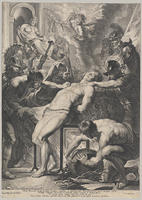Trinidad Pardo de Tavera was, among many things, a doctor and a librarian. (Note: "Pardo de Tavera" is his surname.) Some of the books he wrote in Spanish are available online through Project Gutenberg. Nick Joaquin describes Pardo de Tavera in "Jose Rizal: July 19, 1861-December 30, 1896" (in A Question of Heroes [Makati: Ayala Museum, 1977]) as
a man who came to loathe both the Malay and the Spaniard in himself so intensely he became the first of the sajonistas and, as a member of the Philippine Commission of the 1900s, fought for the implantation of English in the Philippines, in a virulent desire to uproot all traces of Spanish culture from the islands. For good or evil, Trinidad Pardo de Tavera, whom we hardly remember, was one of the deciders of our fate.Well, some people still remember. The Philippine Foundation for Library Scholarship, in cooperation with the Jose Rizal University, is sponsoring the Inaugural Lecture of the Dr. Trinidad H. Pardo de Tavera Lecture Series at the Jose Rizal University Auditorium, 80 Shaw Blvd., Mandaluyong City, on Saturday, 3 September 2005, 1 pm.
Dr. Serafin D. Quiason, former chair of the National Historical Institute and former director of the National Library, will deliver the lecture on "Pardo de Tavera: A Character Sketch and His Legacy to Philippine Scholarship and Librarianship."
Dr. Mita Pardo de Tavera, granddaughter of Dr. Pardo de Tavera, will give the response in behalf of the family. Ms. Ma. Cristina B. Samson, Librarian-Archivist of the Ateneo de Manila University Rizal Library, will talk about the Pardo de Tavera Special Collections Archives. A fee of Php 50.00 will be charged for snacks.
Category: Librarians, Events









